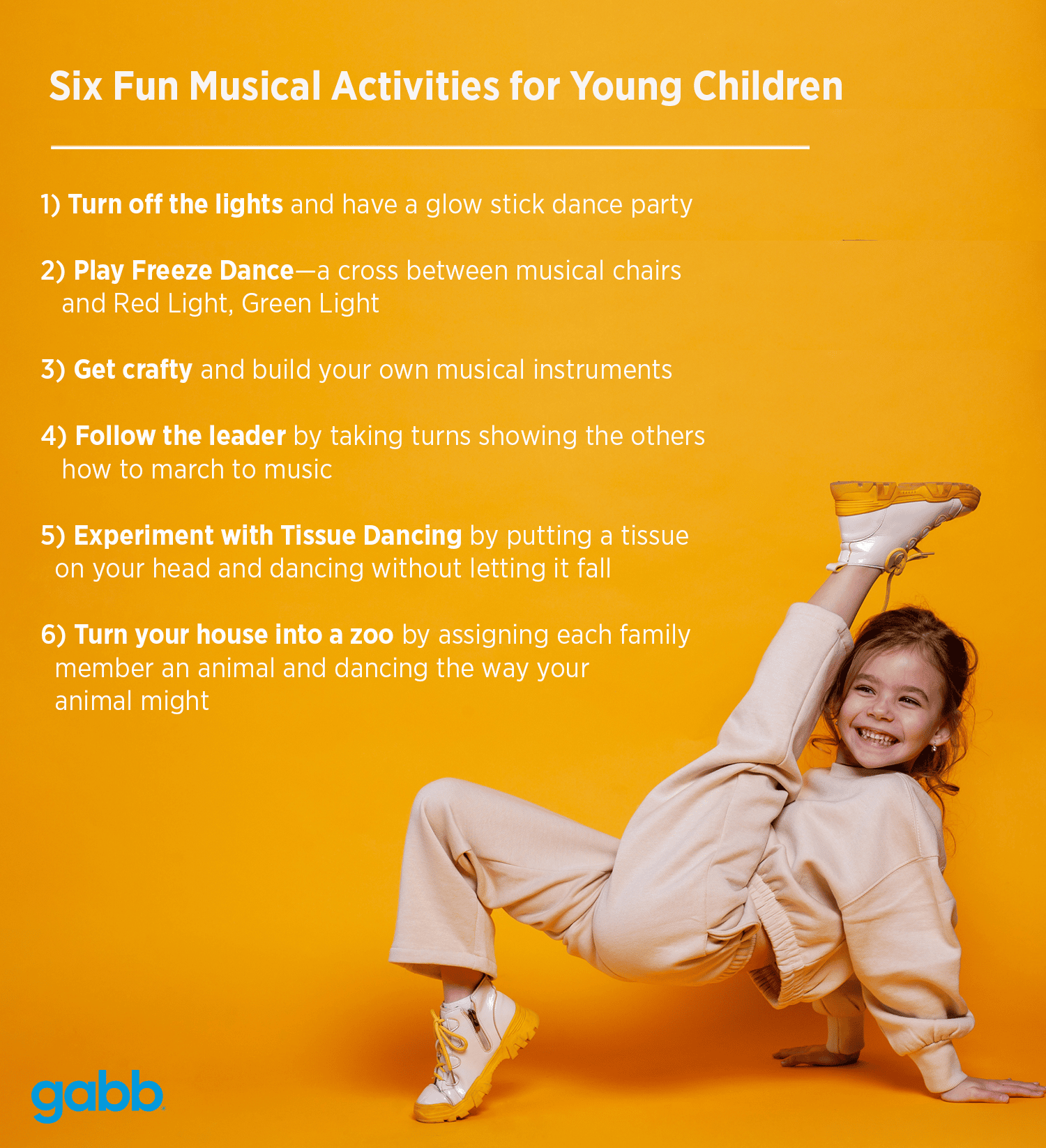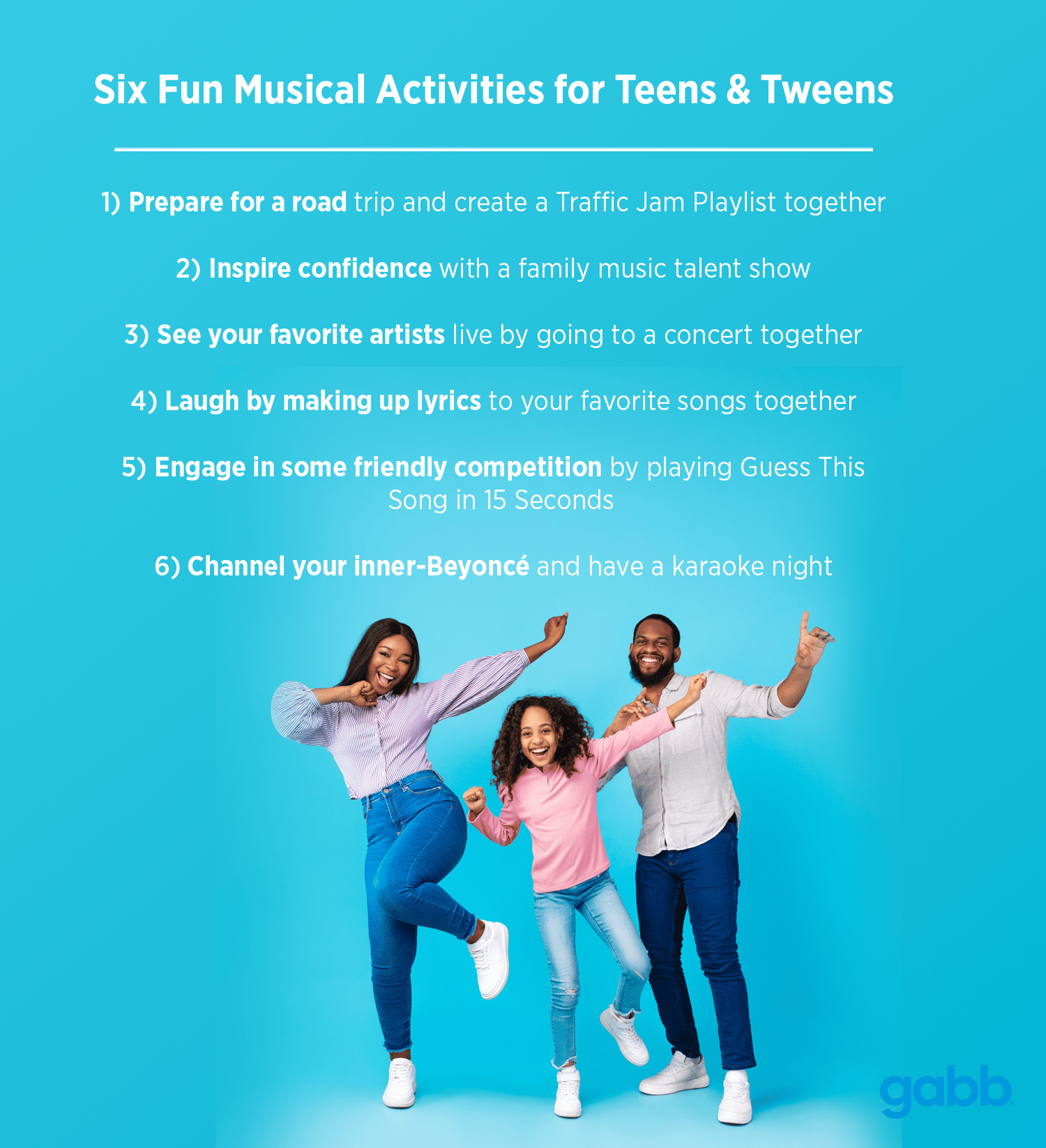The New York Times recently published that in 2019, 13% of adolescents reported having a major depressive episode. That equates to one in eight children, a 60% increase since 2007.11
Furthermore, suicide rates for 10 to 24-year-olds jumped 60% between 2007 and 2018 after remaining relatively steady between 2000 and 2007.11
These concerning trends led the U.S. Surgeon General to release a rare advisory last December outlining steps needed to protect children’s mental health.
While there is no one solution to reversing these concerning trends, there are steps parents can take to make a difference.
In addition to seeking medical advice, diagnosis, or treatment when necessary, this article explores how music can be beneficial.
Music is readily available, and a safe streaming service with music kids like can help them combat the blues.

Music and Brain Development in Early Childhood
Numerous studies indicate that music positively influences children’s maturation and brain development.9 5 2
Why Is Music Important for Child Development?
While music may benefit your child’s brain development to a certain extent, the benefits for children as a whole are more conclusive.
How does music affect your mind?
Music can have a direct impact on improving mental health.
Studies have shown that listening to music is a helpful coping mechanism for many people to lower anxiety and decrease stress.15 8
One study found that music playing around 60 beats per minute is the best tempo to promote a relaxed and conscious mind.1

How does music affect your mood?
The effects of music on mood vary according to an individual’s personality, situation, emotions, and how they regulate them.6
Still, music is an important tool for managing and improving emotions for many people.3 Simply playing background music can be beneficial.
Music can distract us from negative feelings, provide social support, create a relaxing environment, and encourage us to identify and think about our emotions. [6]
The right music can energize and motivate listeners.12 It’s important to be aware that certain types of music can also negatively affect moods.
For example, one researcher found that 17% of study participants who listened to sad music worsened their mood.3
We can encourage kids to be selective about what they listen to so that it can support their desire to feel better.

How does music affect you socially?
Music can improve mental health through increasing feelings of social connectedness.
For thousands of years, music has played an important role in bonding individuals and communities.12
Today, music is an important factor in determining friendships and peer culture.
While this is true for older adults, music seems especially important for adolescents’ social bonds.
It is not uncommon for friend groups to be formed and maintained by similar interests in music.3

How does music affect you physically?
Today’s kids are getting less sleep and less exercise (two crucial pillars of physical health that impact mental health) than children a few decades ago.11
Music can be a critical part of the solution.
Several studies have shown that music can improve sleep quality and quantity.13 7
Music can lower physical stress—such as heart rate, cortisol levels, and blood pressure—all good things when trying to relax and fall asleep.
On the other hand, a poor stress response left unchecked increases the likelihood of chronic high blood pressure, heart disease, obesity, and addiction.4
Furthermore, upbeat music can motivate people to exercise—often increasing positive feelings during workouts.10

Staying Safe While Streaming
Music can be a powerful tool for good, but it can also affect us negatively. Take advantage of the benefits of music streaming without the risks of exposing your family to explicit songs by looking into safe streaming services.
These services remove concerns surrounding profanity, sexual language, hateful lyrics, and more.
As a parent, you won’t have to worry about what kids might hear—simply hit play and connect with them.
Fun Music Activities to Help Families Bond
Listening to music with your child won’t solve all their problems or insulate them from experiencing mental health challenges.
Still, the research above shows that music and child development are connected, and that music plays an important part in improving quality of life.
Parents can bond with and improve their children’s well-being. The activities below are great ways to connect with our kids.
Kids crave connection. Though they may not always know how to do it, they want your approval and acceptance.
Quality music can be the bridge between you. Choose one of the activities above or create your own and discover how music can connect your family today.



